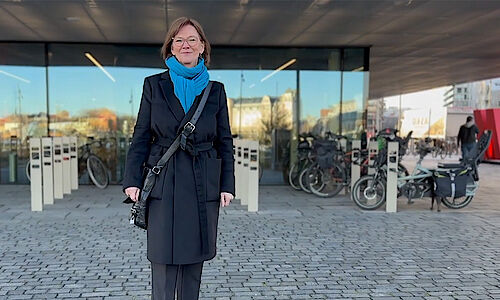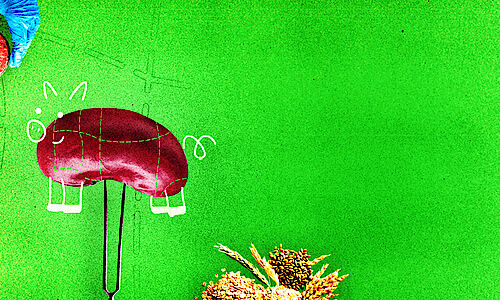News & Academies' activities
Announcement of new project and call for evidence: "Planting the future: opportunities and challenges for sustainable crop development"
There are major challenges for global agriculture to achieve sustainable food security when faced with population growth, climate change and increased social and economic instability. The EU is not immune from these challenges.
EASAC and its member academies have previously drawn attention to the role that the plant biosciences can play in enabling the contribution by an innovative and resilient agriculture, most recently in our 2011 report "Plant genetic resources for food and agriculture: roles and research priorities for the European Union".
EASAC now announces a new project "Planting the future: opportunities and challenges for sustainable crop development" ccontinuing to address genetics and the sustainable intensification of agriculture, covering science and technology in the context of EU food security and EU-global relationships. In this project, part funded by IAP, we will explore the implications of alternative policy decisions on bioscience strategies in agriculture in three work streams:
(i) Collecting evidence in collaboration with partner academies in NASAC to ascertain the impact of EU and Member State actions on the previous, current and likely future applications of molecular biosciences in agriculture in African countries.
(ii) Reviewing a group of comparator countries in Asia and the Americas, who can be characterised by their particularly active adoption of biotechnology in agriculture; exploring socio-economic and environmental impact and the implications for their science and innovation.
(iii) Considering future policy options for the EU, including those relating to newer breeding technologies and their management, and implications for the public and private research sectors with regard to the newer opportunities coming within range that may contribute to the sustainable intensification of agriculture for food and feed production and other industrial applications in the bio-economy (for example in the health sector).
Our analysis will identify where there are current uncertainties in the evidence base and how to address these, together with exploring how the available scientific evidence can be used to inform policy development. EASAC will be advised by a Working Group comprising experts nominated by our member academies:
- Volker ter Meulen (Chairman, Germany)
- Reidunn Aalen (Norway)
- Ervin Balazs (Hungary)
- Ralph Bock (Germany)
- Ian Crute (UK)
- Michel Delseny (France)
- Torbjörn Fagerström (Sweden)
- Evert Jacobsen (The Netherlands)
- Ivan Kreft (Slovenia)
- Birger Moller (Denmark)
- Ewen Mullins (Ireland)
- Enrico Porceddu (Italy)
- Ingo Potrykus (Switzerland, nominated by Academia Europaea)
- Jörg Romeis (Switzerland)
- Joachim Schiemann (Germany)
- Frantisek Sehnal (Czech Republic)
- Hans Säderlund (Finland)
- Tomasz Twardowski (Poland)
- Nathalie Verbruggen (Belgium)
- Roland von Bothmer (Sweden)
- Claudia Canales and Robin Fears (secretariat, UK)
We aim to publish our report of the outputs from this project in mid-2013. EASAC now invites contributions of written evidence to this project to <link>secretariat@easac.eu. Contributions would be particularly helpful if received by 15 October 2012.
back to overview































